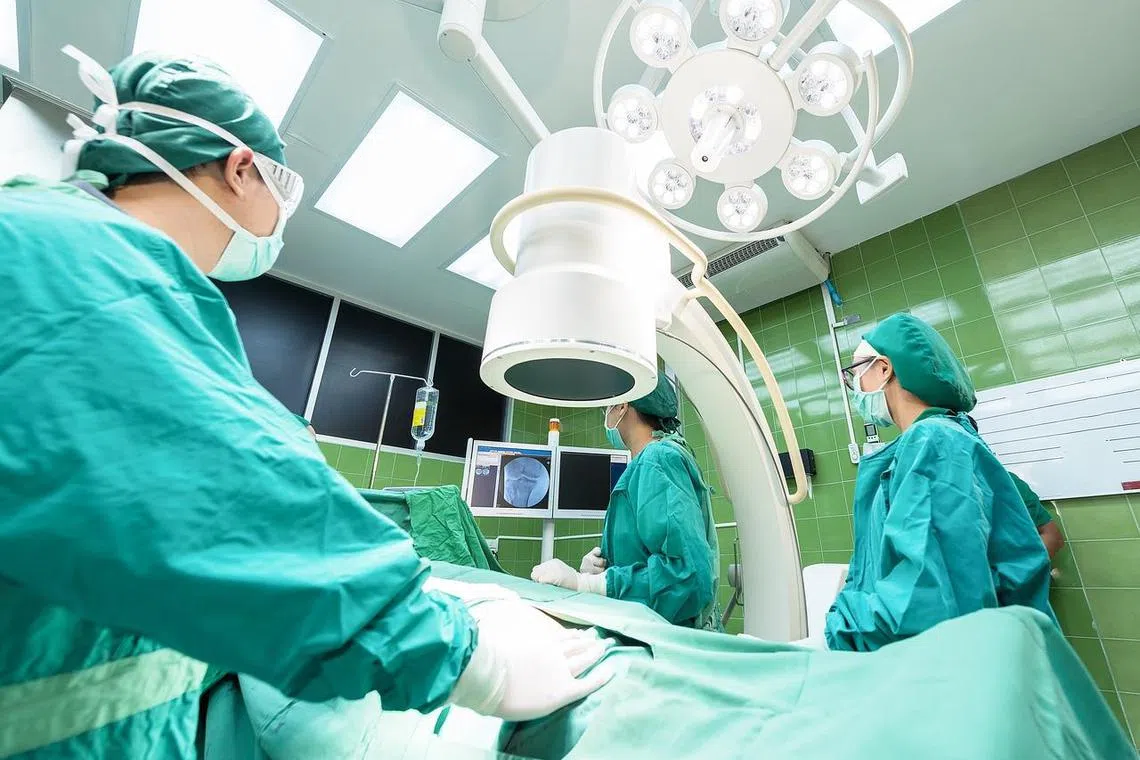One in three female surgeons in Britain has been sexually assaulted: Survey
Sign up now: Get ST's newsletters delivered to your inbox

The survey found that 29.9 per cent of women reported being sexually assaulted by a colleague over the last five years.
PHOTO ILLUSTRATION: PIXABAY
Follow topic:
LONDON – Nearly a third of female surgeons in Britain have been sexually assaulted by a colleague in the past five years, a study published on Tuesday said.
The study, in the British Journal of Surgery, said its results “indicate that both sexual harassment and sexual assault may be commonplace in the UK surgical environment and that rape happens”.
The proportion of women surgeons in the Britain is 28 per cent, according to a report by the BBC.
The study analysed more than 1,400 responses to an anonymous online survey among British surgical workforce members.
It found that 29.9 per cent of women reported being sexually assaulted by a colleague over the last five years, compared with 6.9 per cent of the men.
The survey also showed that 63.3 per cent of women polled said they experienced being sexually harassed by colleagues, as did 23.7 per cent of the men.
“These findings show that women and men in the surgical workforce are living different realities. For women, being around colleagues is more often going to mean witnessing and being a target of sexual misconduct,” the study said.
According to the survey, close to 90 per cent of women and 81 per cent of men said they had witnessed sexual harassment among colleagues over the five-year period.
Alongside instances of rape at work, the study found that survey participants “reported rape by colleagues in other work-related contexts, including teaching spaces, conferences and after-work events with colleagues”.
The survey data also showed that almost 11 per cent of women reported experiencing “forced physical contact linked to career opportunities”.
Ms Tamzin Cuming, chair of the Women in Surgery Forum at the Royal College of Surgeons of England, said the survey “represents a MeToo moment for surgery”.
“Now, the real work has to start to bring about a profound change in the culture of healthcare,” Ms Cuming wrote in The Times newspaper.
The survey was commissioned by The Working Party on Sexual Misconduct in Surgery, a group of National Health Service surgeons, clinicians and researchers “who are working to raise awareness of sexual misconduct in surgery, to bring about cultural and organisational change”.
A second report, titled Breaking The Silence: Addressing Sexual Misconduct In Healthcare, is making recommendations for what needs to change, said the BBC report.
The two reports taken together suggest that the lower proportion of women surgeons, along with surgery being deeply hierarchical, gives some men significant power.
This then combines badly with the high-pressure environment that characterises such work.
Mr Tim Mitchell, the president of the Royal College of Surgeons of England, described the survey’s findings as “deeply shocking”.
He told the BBC that the findings will be a source of “great embarrassment to the surgical profession”, acknowledging that it is “clear it is a common problem” that has not been addressed.
Another point that emerged in the data was a lack in faith in healthcare governing bodies to tackle the problem.
Professor Carrie Newlands, a consultant surgeon from the University of Surrey, speaking to the BBC, noted that the most common scenario involves a junior female trainee who is abused by a senior male perpetrator.
This person often times is a supervisor, she said.
A culture of silence follows as a result, in which people are in “real fear of their future and their careers if they do speak up”, Prof Newlands added.
“We need a major change in investigation processes, so they become external and independent and are trusted in order for healthcare to become a safer place to work,” she said. AFP

